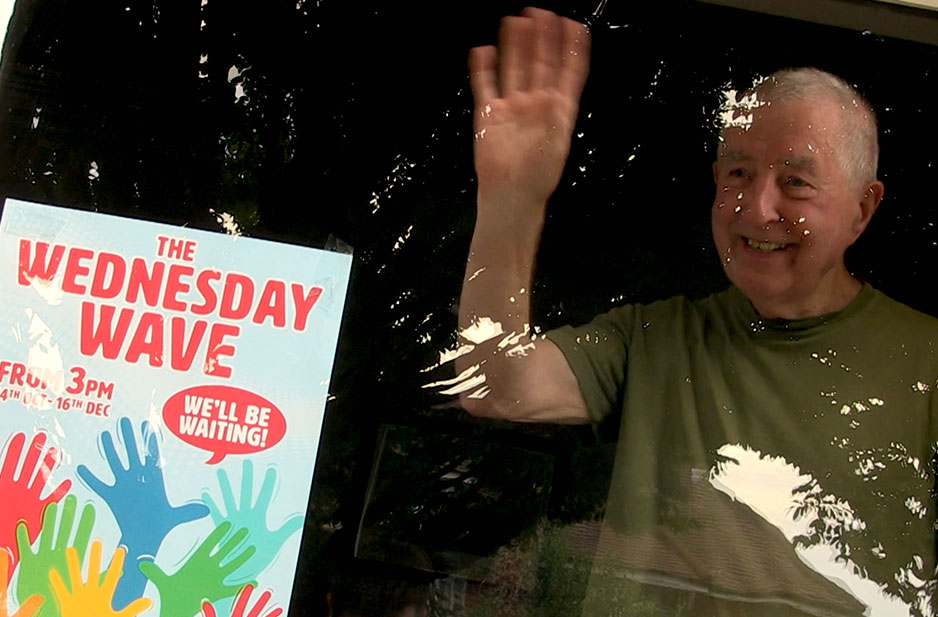Birmingham Hippodrome is set to host the UK premiere of Van Gogh Alive, a multi-sensory arts and entertainment experience for the whole family to enjoy.
Opening 8 Oct 2020, Van Gogh Alive, produced by Grande Exhibitions, has inspired over 6 million people across 50 cities around the world and is now set to transform Birmingham Hippodrome’s auditorium to display Van Gogh’s work in a spectacular immersive experience.
Van Gogh’s works have been exhibited and admired for over a century – but never like this. The multi-sensory experience provides visitors with the unique opportunity to immerse themselves in Van Gogh’s artistry and truly venture into his world through beautifully curated projections accompanied by a stunning classical soundscape.
Fiona Allan, Artistic Director and Chief Executive Officer, Birmingham Hippodrome said: “Having been closed to the public since March, and it being financially unviable for Birmingham Hippodrome to reopen for live performance until social distancing guidance is relaxed, we have had to completely rethink how to use the building and how to serve our public. The opportunity to do something completely different with our spaces, and still provide a high quality and compelling cultural experience, came at exactly the right moment.
"I’m proud we are partnering with Grande Exhibitions to host the UK premiere of Van Gogh Alive. Make no mistake, this is no ordinary art exhibition it is a ground-breaking and breathtaking multi-sensory experience, unlike anything seen before in the region. It gives us the reason we needed to reopen the Hippodrome to the public. Best still, we can operate it safely under social distancing guidelines, and I just know our visitors are going to be absolutely blown away.”
This will be the first time Birmingham Hippodrome has invited the public back into the building after being forced to close in March due to the global pandemic of COVID-19. This large-scale art event provides a COVID safe environment that exceeds government public health guidelines. Controlled visitor capacities and managed visitor flow mean visitors can easily respect government social-distancing guidelines.
Grande Exhibitions, the creator and producer of Van Gogh Alive, use state-of-the-art SENSORY4 immersive gallery technology, combined with a tailored exhibition space to allow crystal-clear projection of over 3000 inspirational images. Set to an evocative classical score, visitors are surrounded by a vibrant symphony of light, colour, sound and fragrance that has been called an ‘unforgettable’ multi-sensory experience. The technology brings Van Gogh's masterpieces to life and gives visitors the sensation of walking right into his paintings, a feeling that is simultaneously enchanting, entertaining and educational.
In addition to the main exhibition and gift shop, Van Gogh Alive will also feature interactive art stations, interpretative areas, a re-creation of Van Gogh’s ‘Bedroom in Arles’ and the hugely popular ‘Sunflower selfie room’.
Bruce Peterson, Owner of Grande Exhibitions, said: “We are incredibly excited that Van Gogh Alive is set to make its UK debut in Birmingham. The global exhibition is a perfect COVID-aware experience for the whole family that will provide some escapism and education. We find that adults and children enjoy the experience in different ways, finding their own meaning in Van Gogh’s work as they explore the galleries.
"We visited a number of venues in the UK, but as soon as we entered Birmingham Hippodrome, we knew we had to bring our Van Gogh Alive here. It is a unique, iconic venue and we truly believe once we tailor the experience to come alive in The Hippodrome, visitors won’t believe their eyes at the size, scale and beauty within."
Since announcing the opening in Sydney and re-opening in Mexico City with COVID-safe measures in place, demand for tickets has been even higher than pre-lockdown. We are confident that the experience will be extremely popular in Birmingham and we can’t wait to open the doors to our first ever UK showing!”
Having enjoyed enormous success in iconic cities such as Madrid, Singapore, Beijing, Abu Dhabi, Milan, and Rome, to name a few, the experience is set to place Birmingham firmly at the heart of the UK’s cultural recovery and provide a welcome morale boost to the whole Midlands region.
Ian Ward, Leader of Birmingham City Council, said: “We have a long and proud history in Birmingham of celebrating art and culture and Van Gogh Alive is a great opportunity to continue to support this vibrant and important industry. Like many other cities and communities across the UK, the Midlands has faced many challenges over the past few months, and it is important for us to get back inside our much-loved institutions and lift our spirits.
"I know I can speak on behalf of Birmingham and the wider region when I say how excited I am that we are hosting the UK premier of Van Gogh Alive and I cannot wait to visit and experience it myself.”
Andy Street, the Mayor of the West Midlands, added: “Many sectors are going through an incredibly difficult period due to the coronavirus pandemic, and the arts is no exception. Birmingham Hippodrome has had its challenges, but it is a critical venue for the West Midlands, and it is great to see how it is adapting and thinking outside the box to overcome these challenges.
“The arrival of Grande Exhibitions and Van Gogh Alive is not only a boost for the Hippodrome, but it will also be great for the wider West Midlands economy, helping to draw visitors back to our region.”
Tickets are on sale now and can be purchased from vangoghaliveuk.com.


























